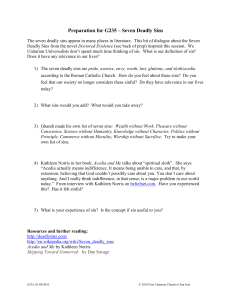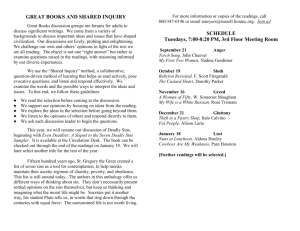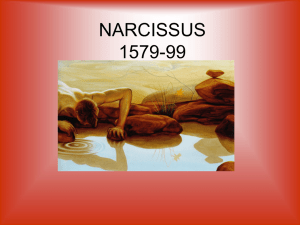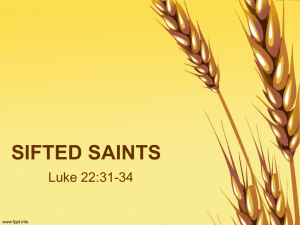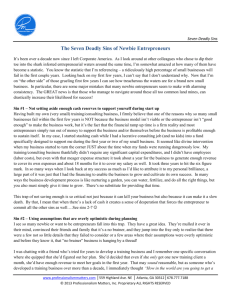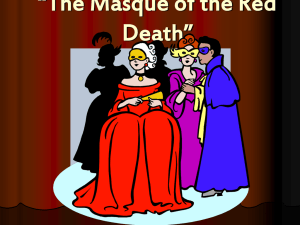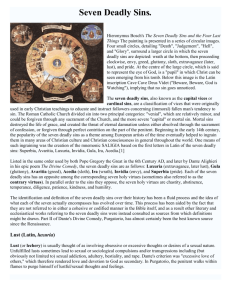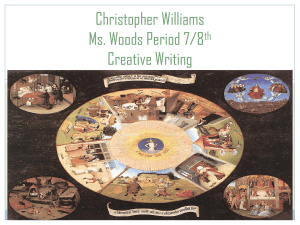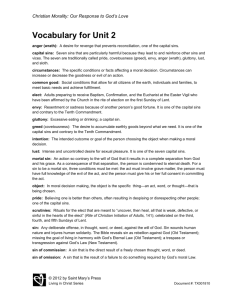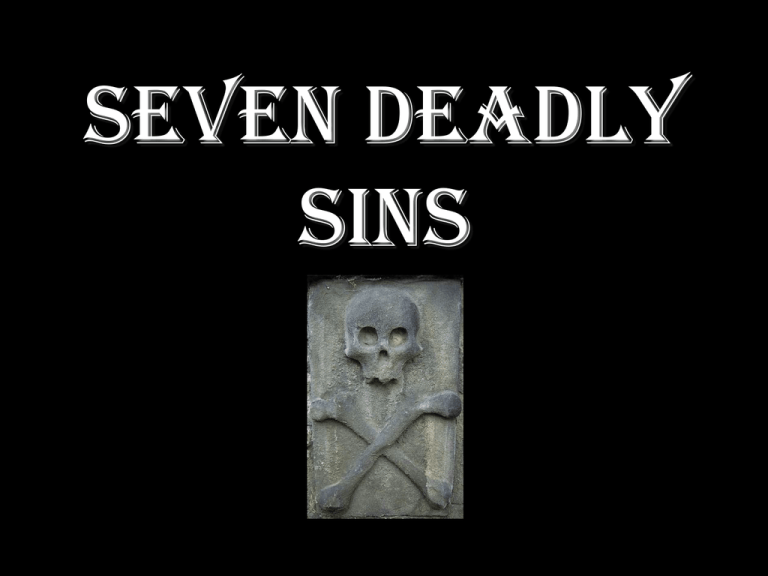
Seven Deadly
Sins
Self-Destructive Behaviors
• A "sin" in the context of Thomas of Aquinas, can be
defined as "something human beings do which
causes them to be unreasonable and
unhappy."
• Another way to define "sin" is
Sin is an offense against reason, truth, and
right conscience; it is failure in genuine love
for God and neighbor caused by a perverse
attachment to certain goods. It wounds the
nature of man and injures human solidarity. It
has been defined as "an utterance, a deed, or a
desire contrary to the eternal law."
The Seven Deadly Sins
A painting by Hieronymus Bosch
• c.1485 (50 Kb); Prado, Madrid
• depicts scenes of worldly transgressions
• The circular layout with god in the center represents
gods all seeing eye - No sin goes unnoticed.
• In the corners of the image appear the "Four Last
Things" mentioned in late medieval spiritual handbooks:
Deathbed, the Last Judgment, Heaven, and Hell, all of
which are favorite themes of separate Bosch panels.
(The next slide is a clearer picture of Bosch’s famous work.)
Pope Gregory the Great
•
Pope Gregory the Great revived
the idea of "The Seven Deadly
Sins" in the sixth century.
• He listed the spiritual offenses
with Pride being the first and
gravest of the seven because it
can lead to the other six.
• The seven deadly sins are
usually committed against one's
self and can destroy a person's
physical and spiritual health.
Capital Vices
During the 13th century, the
Roman Catholic Church
incorporated these sins into
its teaching.
The church called them "capital
vices" that can lead to sin.
Literature such as Geoffrey
Chaucer's "Canterbury Tales"
and various paintings have
illustrated the seven deadly
sins.
1.PRIDE/Vanity
(a desire to be important or attractive to others)
• A person thinks he/she
already "knows it all" and
"has it all".
• Pride is a sin when it is in
excess because it prevents
one from growing and
evolving, and from accepting
oneself and others fairly and
realistically.
Vanity:
the Narcissus myth
• In Greek mythology,
Narcissus was an extremely
beautiful young man who was
obsessed with his own
beauty.
• When he saw his face in the
water, he fell in love with it
and could not stop looking at
the reflection.
• He gradually turned into a
flower, now commonly known
as Narcissus.
Vanity:
the Narcissus myth
• In another version of the
myth, Narcissus drowns
after trying to kiss his
own reflection.
• Narcissism is a term
meaning “excessive self
love.”
2. GREED/AVARICE
(a desire to possess more than one has need or use for.)
• One allows material items control his/her
sense of contentment.
• People under the influence of greed want
more and more and are never satisfied.
3. ENVY
(resentment of others for their possessions; jealous competitiveness.)
• Those suffering from envy wish
they were someone else because
of the qualities and/or
possessions a person has.
• Instead of honoring what they do
have, they dishonor the gift of life
they were given by being
dissatisfied with it.
4. ANGER
(Uncontrollable feelings of resentment, revenge or
even denial, it is also known as Wrath. )
One becomes angry at someone or
something to the point that one
loses control over actions and
words.
• rage, fury, ire, wrath, resentment,
indignation, offense, rant, temper,
seethe, livid, annoyance, antagonism,
rile…
“Anger and intolerance are the twin enemies of correct
understanding.” --Mahatma Gandhi
5. Lust
Sexual desires that disrespect the dignity
of self and others
• Sufferers of lust may
have a strong sexual
attraction towards a
person and can't get
him/her out of their
minds.
6. GLUTTONY
eating for pleasure;
overindulgence in food, drink or
intoxicants
• Instead of being satisfied with what one
has, he/she wants more, more, more.
• The chief error about Gluttony is to think it
only pertains to food. Some people can't
have enough toys, television,
entertainment, sex, or company.
• It is about an excess of anything.
7. SLOTH
(laziness or idleness)
• Slothful people occasionally
do something, but they only
do it haphazardly -- only
enough to get it done.
• Instead of giving life their
best, they give much less
than their best.
“True happiness is not found in
riches or wellbeing, in human fame
or power, or in any human
achievement—however beneficial it
may be—such as science,
technology, and art, or indeed in any
creature, but in God alone, the
source of every good and of all love”
- Catechism of the Catholic Church, 1723 -
Seven Deadly
Sins
End of presentation

